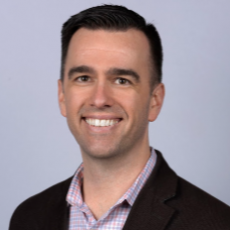Our expert answers 3 Questions
I'm really passionate about how we can make medication care safer for patients, and in particular, I focus on blood thinners, or anticoagulants, which are used to prevent blood clots. These are really effective medicines, but they're also potentially very dangerous if they're not used safely and for the right patient. Based on evidence from more than 50 years of clinical trials and decades of subsequent clinical practice, we already know the right medicines to use for patients who have developed a blood clot in their legs or lungs – yet those patients often don't get the right drug or correct dose. So much of my work involves engaging nurses, pharmacists, and physicians to make sure that the right patient gets the right medicine at the right time, by using research evidence to try to improve this care.
We have more than 3,000 anticoagulation clinics across the country staffed by nurses and pharmacists, who are the true experts who understand the nuances of blood thinners and how to manage patients who use them. How can we better utilize those professionals to make sure that patients are getting the most up-to-date, evidence-based care? Part of that involves making sure that our nurses and pharmacists are able to practice at the top of their training. We can be more thoughtful in ensuring that the policies at the state and national level that dictate what these professionals are allowed to do actually empower them to be able to provide the safest, most effective care possible for a patient.
I also spend a lot of time thinking about how we can design our healthcare system so that it's as efficient, safe, and as effective as possible, and also how we can make sure that the best evidence is actually being translated into practice so that every patient can get the best quality care. Some studies have shown up to 18 years will elapse from the time that we learn about a drug or a therapy until it's widespread in its use. How can we create a system of care that will expedite that implementation?
There's been a lot of discussion in the news recently about whether patients should be taking aspirin as a blood thinner to prevent heart attacks and strokes. And some newer evidence suggests that for many patients, an aspirin may not actually be effective, and may actually increase their risk for internal bleeding – and that is definitely true for patients who are taking aspirin on top of another blood thinner such as warfarin or rivaroxaban to prevent heart attacks or strokes.
Through the Michigan Anticoagulation Quality Improvement Initiative (MAQI2) sponsored by Blue Cross Blue Shield, our group is working with our nurses and pharmacists across a number of anticoagulation clinics to identify patients who are already taking a blood thinner, but are also taking aspirin, to try to get them to discontinue the aspirin. We think we can significantly decrease their risk of having a bleeding complication, ending up in the emergency department, or even being hospitalized, and collectively reduce these events across the state through this effort. This is possible because of the collaboration between the health systems across the state that are part of MAQI2, who are monitoring data across thousands of anticoagulation patients and sharing best practices for making care better.
We're working on a project in partnership with MAQI2 and the Veterans Health Administration to better leverage our electronic health systems to help our nurses and pharmacists in anticoagulation clinics deliver more effective, efficient, and safer care. We are building some powerful dashboards and population health tools that will allow us to search across an entire health system’s record to identify all patients who are taking a particular anticoagulant and then determine whether that blood thinner is prescribed appropriately or quickly identify a problem with the prescription and take action. So it will allow those nurses and pharmacists to be far more efficient in the work that they're doing, but it'll also help them reach out to other patients that previously weren't being referred into the anticoagulation clinic. We think this can really help our patients and our healthcare delivery system.
